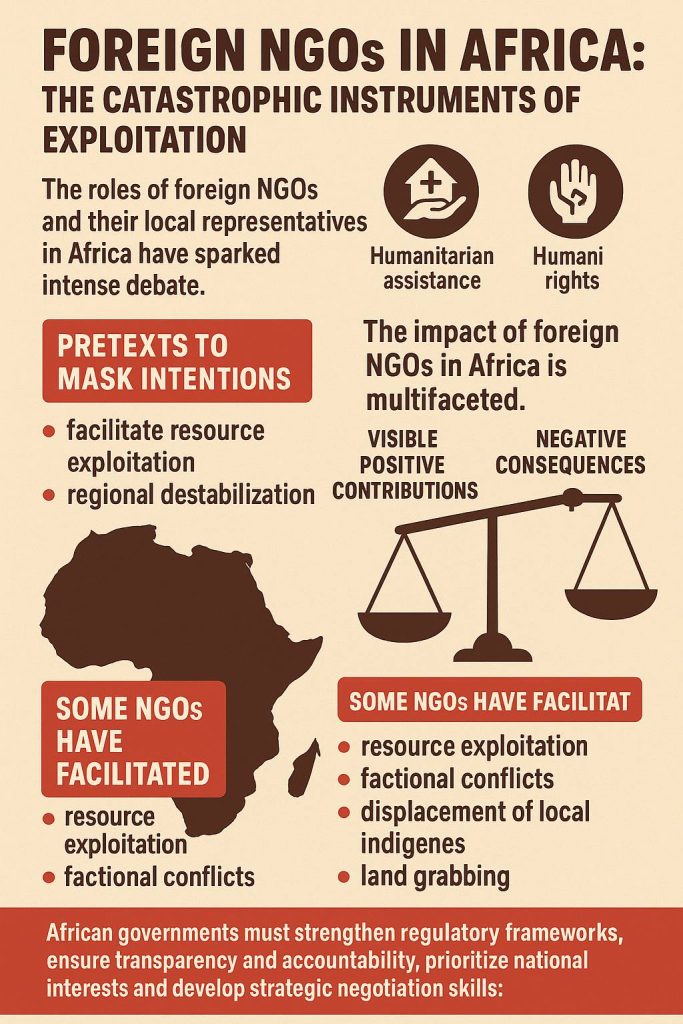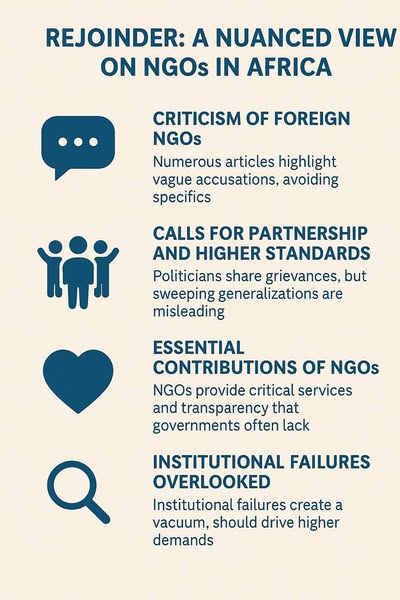
Rejoinder: A Nuanced View on NGOs in Africa
In recent times, there has been a notable increase in articles criticising the role of foreign NGOs in Africa’s development landscape.
One fascinating one was published recently by Ambassador Ezewele Cyril Abionanojie, who signed off as the author of the book ‘The Enemy Called Corruption’ and a winner of the Best Columnist of the Year award in 2020. Nothing is wrong with expressing one’s views.

These narratives, while gaining traction, often follow a strikingly similar pattern: sweeping accusations, vague generalisations, and a conspicuous absence of specific names or verifiable cases.
They echo sentiments of frustration, often shared by political figures and governments grappling with their own failures in governance. The responses by politicians have been to look for opportunities to deflect attention from the state’s failings. This is why Nigeria’s army chief was suggesting that the nation should erect fences all over its boundaries to stem the tide of insecurity.
What makes these critiques particularly disingenuous is the lack of balance. Yes, vigilance is required, and regulatory oversight is necessary. But ignoring the vital contributions of NGOs only obscures the real issue: the chronic institutional failures that create the vacuum NGOs are often forced to fill.
AI-generated video of an NGO sinking a borehole in an imaginary African village.
For instance, Nigeria’s current Vice President, who once served as the governor of Borno State, famously accused NGOs of being complicit in the insurgency ravaging the region.
While it is not implausible that some organisations could exploit humanitarian covers for darker agendas—especially in a world defined by complex international politics—it is both misleading and counterproductive to paint the entire NGO sector with a single brush.
The reality is far more layered.
NGOs, both foreign and local, are at the forefront of essential services where governments are either absent or ineffective. They deliver healthcare in remote areas, provide emergency relief in crises, support education for disadvantaged children, and advocate for human rights and environmental justice. Most importantly, they often do so with a level of transparency and accountability that far exceeds that of many state actors.

What makes these critiques particularly disingenuous is the lack of balance. Yes, vigilance is required, and regulatory oversight is necessary. But ignoring the vital contributions of NGOs only obscures the real issue: the chronic institutional failures that create the vacuum NGOs are often forced to fill.
If Africa must move forward, let it be through partnership—not scapegoating—and through demanding higher standards from all actors, governments included.
